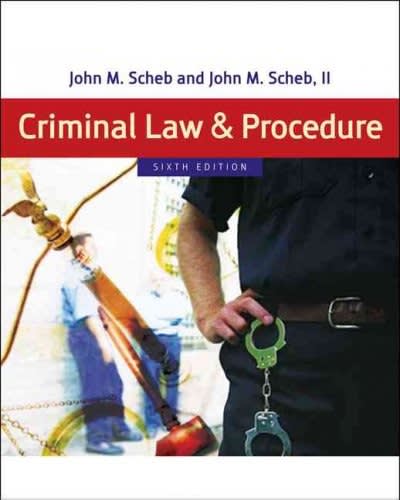Police observed an automobile traveling at a high rate of speed and swerving on the road. They
Question:
Police observed an automobile traveling at a high rate of speed and swerving on the road. They gave pursuit and stopped the vehicle after a five-minute chase.
The driver, later identified as Jerome Johnson, emerged from the car and began to verbally abuse and threaten the officers. Johnson appeared intoxicated but refused to take any of the standard field sobriety tests. Under state law, refusal to perform a sobriety test results in the loss of a driver’s license for a period of one year. The law does not authorize police to force suspects to perform any sobriety tests against their will. Johnson was arrested and transported to a local hospital, where he was forcibly restrained and asked to submit to a blood-alcohol test.
Johnson refused, saying “I’d rather lose my license than let you stick me with that needle.” The test was administered over Johnson’s objection, and the results indicated that Johnson’s blood-alcohol level was substantially above the legal limit. Johnson was charged with driving under the influence of alcohol. Before trial, Johnson’s attorney moved to suppress the results of the blood-alcohol test, arguing that it was taken without Johnson’s consent, without probable cause, and in violation of the state’s implied consent law. If you were the judge in this case, how would you be inclined to rule on the admissibility of this evidence? What additional information would you need to render your decision?
Step by Step Answer:






